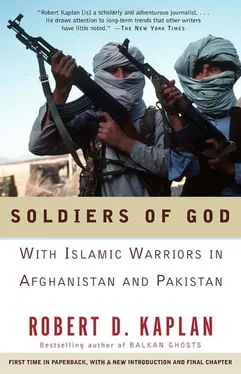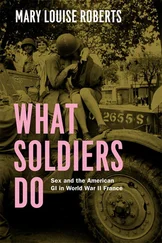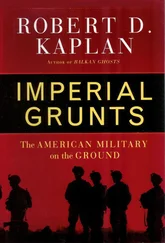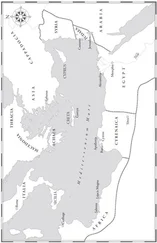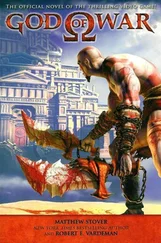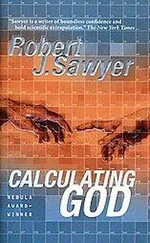John D. Panitza and Kenneth Tomlinson of Reader’s Digest encouraged me to go to Afghanistan the first time and showed an interest in my project throughout, as did Cullen Murphy and William Whitworth of The Atlantic. Editors at The New Republic and the Wall Street Journal were also helpful. The book was written with the help of a grant from the John M. Olin Foundation and the Institute for Educational Affairs; I am especially grateful to Kimberly Ohnemus and Tom Skladony of those two organizations. My agent, Carl D. Brandt, made the selling of this book to a top publisher seem easy, something I had never thought possible. My editor, Michael C. Janeway, helped me to progress technically as a writer for the first time in years. Thanks are also due to Julia Carmel and Larry Cooper at Houghton Mifflin, and to Eric Haas at The Atlantic.
In chapter 5, a short quote from Abdul Haq is taken from an interview he once gave John Fullerton, whose 1983 book, The Soviet Occupation of Afghanistan, is the best of the early primers on the war. In chapter 6, much of the information on Quetta is taken from an article I wrote for the March 1988 issue of The American Spectator. Other, smaller sections of the book previously appeared in The Atlantic, The New Republic, and Reader’s Digest.
In Greece, Alice Anne Demosthenos and Eleni Angelinos were great friends to my family during a difficult period, and their kind help allowed me many more hours of writing than I normally would have had.
In Peshawar, Anne Hurd and Kurt Lohbeck opened their home to me and arranged my first interviews with Abdul Haq and others. Massoud Akram, Dr. Mohammed Yaqub Barikzai, Wakhil Abdul Bedar, Mohammed Es Haq, Hassan Kakar, Farouk Adam Khan, and Mohammed Anwar Khan, among many others, helped me to understand the culture and politics of the Pathans. Azima Atmar and Isabelle Moussard tutored me on the subject of women in Afghan society, as did Anne Hurd.
Joe Gaal, Kathy Gannon, Steve Masty, and Tony O’Brien were the most delightful friends one could have in a place like Peshawar. Joe Gaal died in 1989. I will miss him. He was a talented, understated photographer whose willingness to risk his life provided the outside world with many telling photos of the Soviet occupation.
Helena Beattie, Tony Davis, Ed Girardet, Ed Gorman, John Gunston, Peter Jouvenal, Abdul Jabar Sabit, Rob Schultheis, Lisa Schiffren, Savik Shuster, Nancy deWolf Smith, and Brian Wilder are friends and colleagues whose help and good company I will cherish forever.
Ahmed, Akbar S. Millennium and Charisma Among Pathans. Routledge & Kegan Paul, London, 1976.
Ajami, Fouad. The Vanished Imam: Musa al Sadr and the Shia of Lebanon. Cornell University Press, Ithaca, N.Y., 1986.
Babel, Isaac. Collected Stories. Translated and revised by Walter Morison, with an introduction by Lionel Trilling. Penguin Books, Middlesex, England, 1961.
Babur Padshah, Zahirud-din Muhammad. Babur-nama. Translated from Turki by Annette S. Beveridge. Sange Meel Publications, Lahore, Pakistan, 1987.
Barry, Michael. “Le Grand Jeu Afghan.” Politique Internationale, Paris, Spring 1985.
Behr, Edward. ‘Anyone Here Been Raped and Speaks English?” A ForeignCorrespondent’s Life Behind the Lines. Viking Press, New York, 1978.
Biddulph, C. E. The Poems of Khush Hal Khan Khatak. Saeed Book Bank, Peshawar, Pakistan, 1890, reprinted 1983.
Bradsher, Henry S. Afghanistan and the Soviet Union. Duke University Press, Durham, North Carolina, 1983.
Byron, Robert. The Road to Oxiana. Macmillan, London, 1937.
Caroe, Olaf. The Pathans. Macmillan, London, 1958.
Cornell, Louis L. Kipling in India. St. Martin’s Press, New York, 1966.
Dupree, Louis. Afghanistan. Princeton University Press, Princeton, N.J.,
1973
Elphinstone, Mountstuart. An Account of the Kingdom of Caubul. Vol. 1.
Oxford University Press, Karachi, Pakistan, 1972.
Evans, Rowland, and Robert Novak. “Pakistan: Moscow’s Terror Target.” Reader 5 Digest, July 1988, pp. 124-28.
First Consolidated Report. Office of the United Nations Coordinator for Humanitarian and Economic Assistance Programs Relating to Afghanistan. Geneva, 1988.
Follett, Ken. Lie Down with Lions. William Morrow, New York, 1986.
Fullerton, John. The Soviet Occupation of Afghanistan. Far Eastern Economic Review, Hong Kong, 1983.
Girardet, Edward R. Afghanistan: The Soviet War. St. Martin’s Press, New York, 1985.
Gunston, John. “A Quick Killing on the Road to Kabul.” You (London magazine), October 30, 1988, pp. 96-100.
Hemingway, Ernest. Men at War. Crown Publishers, New York, 1955.
Hodson, Peregrine. Under a Sickle Moon: A Journey Through Afghanistan. Hutchinson, London, 1986.
Holy Quran. With English translation by Abdul Majid Daryabadi. Taj Company, Karachi, Pakistan, 1984.
Howarth, David. The Greek Adventure: Lord Byron and Other Eccentrics in the War of Independence. William Collins, London, 1976.
Keegan, John. The Face of Battle. Jonathan Cape, London, 1976.
— The Mask of Command. Viking Penguin, New York, 1987.
Khan, Muhammad Hayat. Afghanistan and Its Inhabitants. Translated by Henry Priestly. Indian Public Opinion Press, Lahore, British India, 1874.
Kipling, Rudyard. A Choice of Kipling’s Verse. Selected and with an Essay on Rudyard Kipling by T S. Eliot. Faber and Faber, London, 1941.
— Kim. Penguin Books, London, 1901, reprinted 1987.
The Koran. Translated with notes by N.J. Dawood. Penguin Books, Middlesex, England, 1975.
Lessing, Doris. The Wind Blows Away Our Words. Pan Books, London, 1987.
Levi, Peter. The Light Garden of the Angel King. William Collins, London, 1972.
Lindholm, Charles. Generosity and Jealousy: The Swat Pukhtun of Northern Pakistan. Columbia University Press, New v 0rk, 1982.
Mackenzie, Richard. “A Brutal Force Batters a Country.” Washington Times, December 5, 1988.
Majrooh, Sayd B., and S. M. Y. Elmi. The Sovietization of Afghanistan. Printing Corporation of Frontier, Peshawar, Pakistan, 1986.
Manning, Olivia. The Danger Tree. Weidenfeld and Nicolson, London, 1977.
Moorhouse, Geoffrey. To the Frontier. Hodder and Stoughton, London, 1984.
Newby, Eric. A Short Walk in the Hindu Kush. Seeker and Warburg, London, 1958.
Newell, Nancy Peabody, and Richard S. Newell. The Struggle for Afghanistan. Cornell University Press, Ithaca and London, 1981.
Orwell, George. The Penguin Essays of George Orwell. Essay on Rudyard Kipling. Penguin Books, Middlesex, England, 1984.
Pennell, T. L. Among the Wild Tribes of the Afghan Frontier. Seeley and Company, London, 1909.
Pinney, Thomas. Kipling’s India: Uncollected Sketches 1884…88. Macmillan, London, 1986.
Reeves, Richard. Passage to Peshawar. Simon and Schuster, New York, 1984.
Revel, Jean-Frangois. “The Awful Logic of Genocide.” National Review, October 4, 1985, pp. 22-29.
Ridgway, R. T. I. Pathans. Saeed Book Bank, Peshawar, Pakistan, 1983
Robinson, J. A. Notes on Nomad Tribes of Eastern Afghanistan. Nisa Traders, Quetta, Pakistan, 1934.
Roy, Olivier. Islam and Resistance in Afghanistan. Cambridge University Press, Cambridge, England, 1986.
Rushdie, Salman. Shame. Jonathan Cape, London, 1983.
Читать дальше
